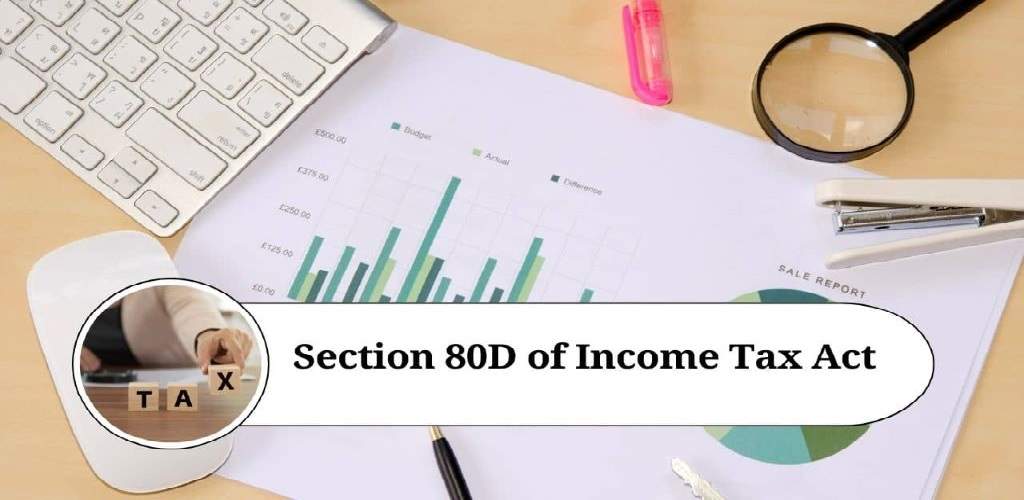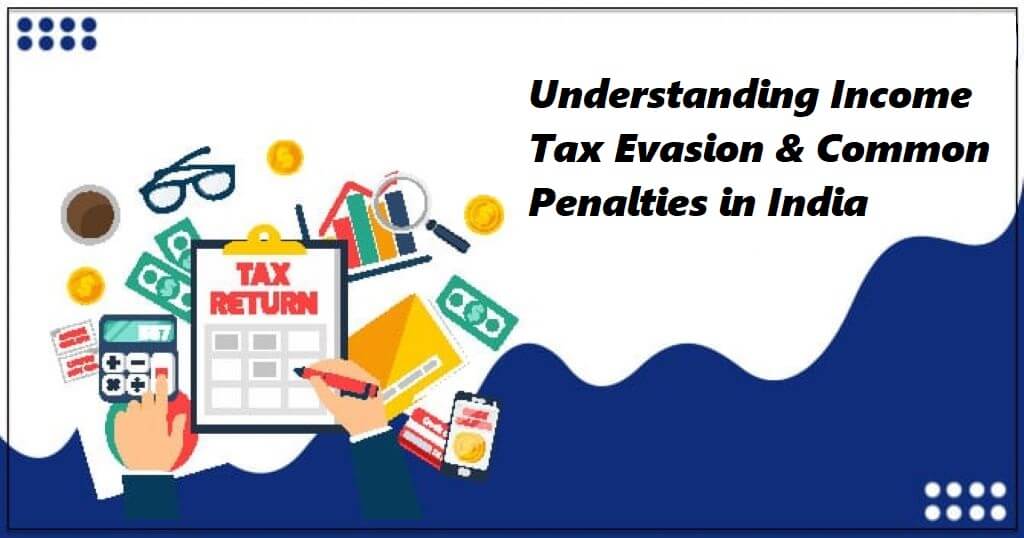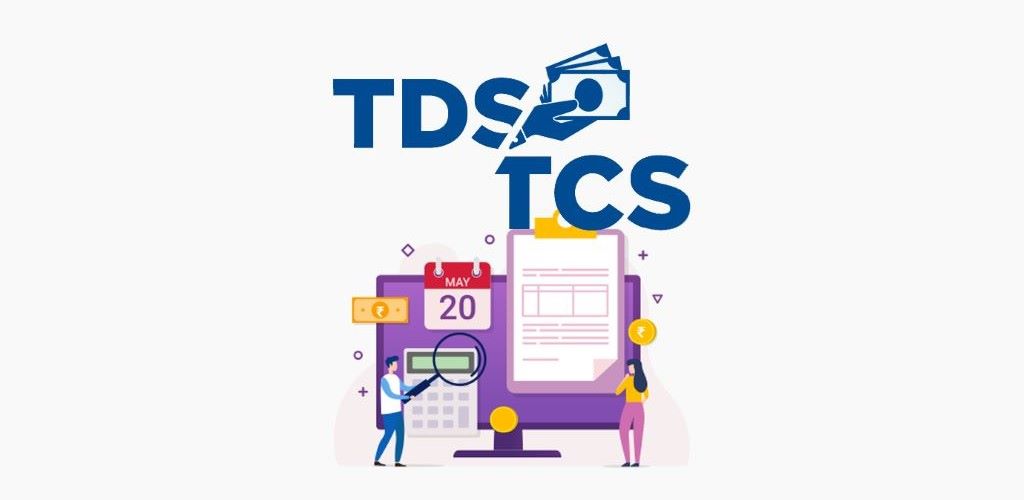No matter how healthy you are or your current age, medical emergencies can occur anytime and anywhere without informing you beforehand. Health insurance is a great way to protect yourself from the risks of a medical emergency. The Government of India has introduced tax benefits under Section 80D of the Income Tax Act to encourage people to buy health insurance.
The Income Tax Act 1961 has provisions that let individuals reduce the amount of tax they have to pay through deductions. It’s crucial to understand the specific sections that apply to these deductions. One such important section is Section 80D, which can help you protect your health and also save on your income tax obligations. Whether you’re an individual or a family, taking advantage of health insurance and using section 80D can be beneficial for both you and your loved ones. It is indeed a win-win situation.
In this post, we’ll discuss everything you need to learn about Section 80D of the Income Tax Act.
Meaning of Section 80D
To put it simply, Section 80D of the Income Tax Act allows individuals and families to save on taxes by deducting the amount they spend on health insurance premiums from their total income. This deduction is available to both regular taxpayers and Hindu Undivided Families (UHF).
For example, Let’s say you pay Rs. 25,000 or more towards health insurance premiums in a year; you can subtract that amount from your taxable income. This means you’ll end up paying less tax. If you’re a senior citizen aged 60 years or above, you can even claim up to Rs. 50,000 as a deduction for health insurance premiums.
It is important to remember that this deduction is not limited to basic health insurance plans. It applies to other health-related policies like critical illness plans, top-up plans, and even expenses on preventive health check-ups.
Who is Eligible For Deduction Under Section 80D?
The people eligible for deductions under Section 80D include individuals and Hindu Undivided Families (HUFs). Within these categories, the following individuals are eligible to claim deductions:
- Individuals
- Hindu Undivided Family (HUFs)
- Self
- Spouse
- Parents
- Dependent Children
Understanding The Variations Of Section 80D
There are two popular types of Section 80D. Let’s discuss them in detail!
- 80 DD
Section 80 DD is designed to provide tax benefits to families caring for a disabled member. This deduction aims to ease the financial burden on families while ensuring proper care for their dependents. It’s important to note that only the family of the disabled person, not the individual, can claim this deduction. If the disabled person has already claimed a deduction, then the family members cannot avail of this benefit.
- 80 DDB
Section 80DDB, on the other hand, offers tax deductions to individuals and Hindu Undivided Families (HUFs) for the treatment of specific diseases. This provision allows taxpayers to reduce their taxable income by the amount spent on treating these illnesses. However, it’s worth mentioning that deductions under 80DDB cannot be claimed against either long-term or short-term capital gains.
What Deductions Are Allowed Under Section 80D?
Let’s take a look at the deductions that are allowed under Section 80D.
| Types of Policyholders (Including their Age) | Deduction for Self & Family | Deduction for Parents | Preventive Health check-up | Maximum Deduction |
Self & Family (below 60 years) | Rs. 25,000 | – | Rs. 5,000 | Rs. 25,000 |
Self & Family + Parents (all of them below 60 years) | Rs. 25,000 | Rs. 25,000 | Rs. 5,000 | Rs. 50,000 |
Self & Family (below 60 years) + Parents (above 60 years) | Rs. 25,000 | Rs. 50,000 | Rs. 5,000 | Rs. 75,000 |
Self & Family + Parents (above 60 years) | Rs. 50,000 | Rs. 50,000 | Rs. 5,000 | Rs. 1,00,000 |
Members of HUF (below 60 years) | Rs. 25,000 | Rs. 25,000 | Rs. 5,000 | Rs. 25,000 |
Members of HUF (a member is above 60 years) | Rs. 50,000 | Rs. 50,000 | Rs. 5,000 | Rs. 50,000 |
What are the Factors Excluded Under Section 80D?
Here is the list of factors not included under Section 80D.
- Eligible Family Members
One of the biggest factors that are excluded under Section 80D is that you cannot claim for premiums paid for siblings, uncles, or any other relatives. However, you can claim a deduction for health insurance premiums paid for your spouse, dependent children, and parents.
- Dependency of Children
Another major factor that is not included under Section 80D is that If your children are financially independent and not dependent on you, you cannot claim a deduction for their health insurance premiums. The deduction applies only to dependent children.
- Exclusions of Service Tax & Cess
In the next factor, you cannot claim a deduction against service tax, cess, or any other charges levied on the premium amount. Remember that the deduction under Section 80D is available only for the premium paid towards health insurance coverage.
- Group Health Insurance
If you are covered under a group health insurance policy provided by your employer, you cannot claim a deduction for the premiums paid under that policy. The deduction is available for individual and family health insurance policies.
- Cash Payments
Last but not least, you should keep in mind that cash payments made towards health insurance premiums are not eligible for deduction under Section 80D. To claim the deduction, the premium should be paid through a non-cash mode such as a bank transfer, check, or online payment.
Things to Remember When Availing Tax Deductions Under Section 80D
Here is a list of the things you should keep in mind while availing tax deductions under Section 80D.
- Check the Eligibility Aspect
One of the first and foremost aspects you need to remember is that you should meet the eligibility criteria for claiming deductions under Section 80D. This aspect is applicable to both individuals and Hindu Undivided Families (HUFs).
- Don’t Overlook Premium Categories
Make sure you understand the differentiation among premiums paid for your health insurance, your family’s coverage, and premiums for your parents’ policies. Each category has its own sub-limits and deduction rules.
- Prioritize Documentation
The third aspect you should keep in mind is that you should always maintain thorough documentation of all health insurance premium payments. Proper records are essential for substantiating your claims during tax return filing.
- Keep an Eye on Deduction Limits
Be aware of the maximum deduction limits set under Section 80D. Additionally, check if you qualify for higher deduction limits as a senior citizen (aged 60 years or above).
- Parental Dependency
If you’re claiming deductions for your parent’s health insurance premiums, ensure they meet the dependency criteria. Different deduction limits apply based on whether your parents are dependent or non-dependent.
- Policy Compliance
Finally, you must verify that the health insurance policies you purchase adhere to the criteria specified by the Income Tax Act to qualify for deductions under Section 80D.
Final Thoughts
So, there you have it! Make sure you understand the provisions of Section 80D and staying updated with the evolving tax regulations is crucial for making informed decisions regarding health insurance and maximizing tax savings. If you have any concerns, try to seek information from insurance providers and stay updated on the latest tax norms. Thus, it will ensure that your health insurance plans not only provide adequate coverage but also offer the tax benefits you are entitled to.
Frequently Asked Questions
Listed below are the frequently asked questions related to the Section 80D of the Income Tax Act.
No, you can only claim the deduction for the actual amount you spent.
If you’re a salaried person, you can claim it by giving your insurance premium receipts or medical bills to your employer or when you file your income tax return.
No, you can’t claim it if you’re using the new tax system. But if you use the old system, you can.
No, if your employer reimburses you, you can’t claim it as a deduction.
Yes, you can claim deductions under both 80C and 80D under the old tax system.
Yes, you can, but it’s better to keep the receipts handy.








